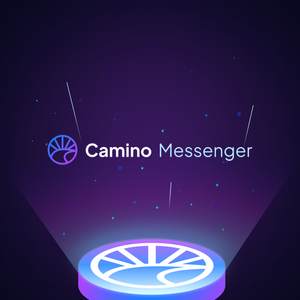Use Case in detail
Explore new potentials for transportation providers in web3
Back to overviewTravel is defined as the movement of people between distant geographical locations and occurs by various means of transportation, such as planes, trains, buses, and ships, to name a few. These transportation providers can thrive thanks to ecosystems such as ports, train stations, and airports. For this part of the travel industry in particular, it is essential to keep up with the fast pace and use technologies that ease the collaboration between multiple partners.


Safety and speed are paramount in the fast-paced travel industry. However, lots of current technologies struggle to keep up with these demands. Transportation providers face numerous challenges, including high transaction costs, lack of innovation, legacy systems, gate-keeping intermediaries, and security concerns/fraud, leading to friction for customers.
Blockchain technology offers a secure, transparent solution for data exchange enabling efficient transactions while helping with identity verification, reducing fraud, and many other challenges.

“Blockchains have enormous potential to materially change our business model by making transactions along the value chain more secure, efficient and traceable. Camino, as the first blockchain platform for travel, offers vast possibilities to enhance processes, products and services in the travel industry. Eurowings will be one of the first movers, currently exploring first use cases in inflight shopping, customer loyalty, digital marketing and sales together with our partners Chain4Travel and Peakwork.”

Increase travel connectivity and reduce APIs with the Camino Messenger
The Camino Messenger application solves today’s lengthy and expensive connection process and enables unified, secure, and inexpensive communication for travel companies with standardized messaging types and direct connectivity. Connect to the global travel market in just 20 minutes.
Contact us for a demoTransportation businesses need to provide and maintain dozens of APIs to connect to hundreds of distribution partners if they want to sell directly. On the other side, it is costly for distribution partners to connect to many transportation APIs that look different, increasing the technical complexity and cost..
The offering and exchange of any bookable content in the travel industry will be much easier and faster by using the Camino Network, needing only one API to connect to the Camino infrastructure and, in total, much fewer than before.
Today's legacy systems don't allow much flexibility. Additionally, ticket fraud is a significant problem that affects travel providers losing billions of dollars annually.
NFT technology revolutionizes the retail ticketing experience by enhancing security and allowing for greater flexibility. It gives both travel providers and customers a more seamless and trustworthy experience. For example, lounge access can be bought separately from the booking process, independently from the legacy process. In addition, NFT tickets allow C2B or even C2C ticket trading. With NFTs, passengers can securely transfer, resell, and rename their tickets.
The payment and settlement process in the travel industry is typically complex, time-consuming, and costly.
The payment process on Camino Network will change this as all travel services along the value chain take place in a global peer-to-peer network, which is extremely fast, and results in significantly lower transaction costs. This could mean that even micro services and products could be offered online at a fraction of today's transaction cost. The settlement between suppliers, partners, and B2B customers could be done more efficiently and automated. Records on the Camino Network will provide auditable data. Another advantage is the security aspect, which is given by definition by a blockchain and reduces fraud significantly.
Tracking of data, transactions, or even physical products such as luggage involves many connections and system integrations which can lead to errors and overall involve high costs.
Using blockchain, for example, for baggage tracking means having a single source of truth which can increase efficiency and customer satisfaction by improving real-time monitoring, tracing, and transparency. In addition, smart contracts can handle complaint management and compensation automatically and support the certification and authentication of employees and partners across the value chain.
The volume of complaints since the emergence of social media and online communication channels is overwhelming. Poor complaint management, however, can negatively impact customer satisfaction and brand reputation.
Web3 technology can automate claims before complaints are submitted. Managing claims using programmable smart contracts saves costs and impresses customers with real-time resolutions.
Managing rewards in transportation can be complex and costly and may not always deliver the desired results.
Blockchain technology introduces new opportunities to design incentives for both B2B and B2C. Token rewards, such as NFTs, can effectively encourage desired behaviors among travelers, communities, or partners. For example, a train operator could offer a free trip after a certain number of rides taken within a specific period. Smart contracts automate the entire coordination process, making incentive management more efficient and contributing to improved customer experience and loyalty.
Everyone strives for loyal customers, but maintaining loyalty is time-consuming and costly. Especially SMEs, lack the resources to set up loyalty systems.
The Web3 innovation provides more efficiency und automation of long tail loyalty programs with customized rewards, fast access, and personalized offers. These can be easily set up with points/NFTs, global partners, and customized tips, and transactions are visible instantly. Extending customer loyalty with a free drink on a flight or access to an airport lounge, or even a free flight or shuttle service after a minimum purchase can become part of loyalty programs.
Travelers love collecting things from their trip, such as souvenirs. As of today, these souvenirs can only be physical. The next generation, however, strives for digital proofs of travel that they can share with social networks online.
Digital collectibles are an innovative way to promote the brand and engage with the audience. For example, a transport company can increase traffic in a certain destination with an exclusive NFT collection featuring iconic landmarks. Such digital collectibles not only celebrate local culture but also create memorable experiences and lasting brand impressions.
Implementing voucher solutions can be complex, especially when multiple parties are involved.
The Camino ecosystem provides a simple setup for companies to add and redeem vouchers, with added flexibility and higher loyalty potential. For example, airlines and rail companies can easily offer free coffee from an external provider for delayed travelers.
Limited expertise and high costs often prevent businesses from exploring gamification as an innovative method of improving guests’ experiences.
Consider a scenario where businesses reward customers with a complimentary coffee or exclusive gift for reaching a specific booking threshold. By using NFTs customers can enjoy these perks in an entertaining and rewarding manner.
The integration of information services can be challenging for the travel industry. The compatibility of different systems, data security issues, and the overall cost of integrating can prevent the implementation of such valuable services.
With Camino Network, a single source of information is ensured, and integration costs are reduced. Any kind of information service, for example, information about delays, accidents, or the weather, can be easily provided for customers.
Tracking and verifying the environmental impact and effectiveness of carbon offsetting programs can be challenging. Customers often struggle with a lack of transparency and may question the true impact of emission reduction efforts.
Blockchain technology ensures the integrity of offsetting processes by creating a tamper-proof record. Improving reporting systems with the help of Camino Network and offering clear, accessible information can help build trust and demonstrate a genuine commitment to reducing carbon emissions.
Along the entire travel supply chain, the industry relies on identity verification to ensure passengers' safety and security and comply with regulatory requirements. However, the current process can be slow, inefficient, and vulnerable to fraud.
Self-Sovereign Identity (SSI) introduces a new era of data management, providing travelers with true control over their personal information. This reduces the need for companies to store sensitive records, mitigating the risk of data leaks. Now travelers can create a single wallet containing all their data. This allows them to have accounts across various websites without multiple passwords, store essential travel information, and attach identity verification for secure travel bookings and other transactions.
Manuel demonstrated Camino's potential for customer service based on Peakwork's brand new voucher platform: Travel products & services are turned into digital assets via a B2B backend. With applied blockchain technology, the process of distribution, even between various partners, and financial settlement, work almost automatically."
Go to Video